Evaluating, understanding and managing environmental, social and governance (ESG) risks is an important success factor for overseas projects. With their dominant role in overseas project development, the Chinese infrastructure construction companies are increasingly conscious of these risks. At the same time, the Chinese government through the Ministry of Commerce (MOFCOM) and the Ministry of Ecology and Environment (MEE) have provided two guidelines in July 2021 and January 2022 to encourage Chinese developers engaged overseas to improve their environmental management throughout the whole project lifecycle. In addition, the China International Contractors Association (CHINCA) together with partners has provided or supported the upgrading and development of ESG guidelines for overseas contractors with the goal to reduce risks, improve co-financing with international partners and to accelerate the policy goals of sustainable development of overseas markets.
To share recent development, the UK PACT sponsored project on accelerating ESG integration in overseas projects implemented by the Green Finance & Development Center (GFDC) at FISF Fudan University, and the Centre for Sustainable Finance at SOAS University of London, together with the China International Contractors Association (CHINCA) and the Sino-German Center for Sustainable Development (SG-CSD) implemented by the German development agency GIZ organized an online workshop on March 15. The event attracted about 150 participants and was held in Chinese and English with simultaneous interpretation.
The goal of the workshop was to share insights on current practices and challenges of integrating ESG factors in overseas investments, by fostering a discussion among participants on how such mechanisms could be applied to Chinese overseas projects. Chinese project developers with an overseas portfolio, especially CHINCA’s member companies, were the target audience of the workshop.
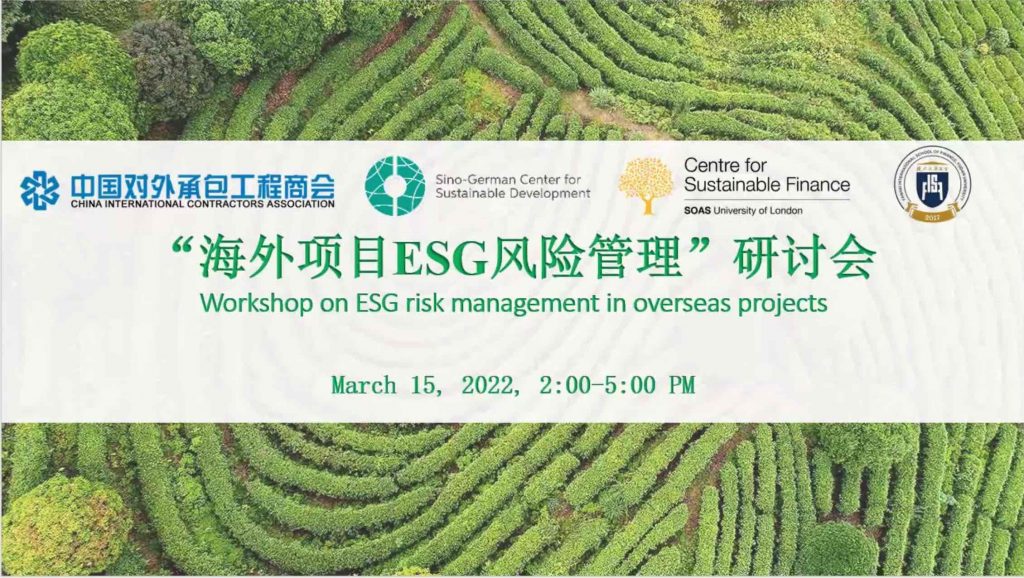
Speakers and panelists
The speakers and panelists included some of the leading researchers and practitioners in the field of ESG integration in project finance:
- Zhang Xiang, Secretary General at China International Contractors Association (CHINCA)
- Hagen Ettner, Director of the Sino-German Center for Sustainable Development (SG-CSD) at GIZ
- Prof. Ulrich Volz, Director of the Centre for Sustainable Finance at SOAS University of London
- Prof. Christoph Nedopil, Director of the Green Finance & Development Center at FISF Fudan University
- Zhu Yuan, Ministry of Ecology and Environment
- Rhys Gordon-Jones, Counsellor, Financial and Professional Services, UK Embassy Beijing
- Shang Shengping, CHINCA
- Niu Chao, Standard Bank of South Africa
- Towfiqua Hoque, Senior Infrastructure Finance Specialist at Global Infrastructure Facility (GIF)
- Wang Zhe, PowerChina International
- Zhu Zhixi, Environment Specialist, Operational Service Department, Asian Infrastructure Investment Bank (AIIB)
- Yue Yang, Overseas Finance Expert
The workshop was moderated by Tang Yingzhi, Deputy Director of the Green BRI Center at the International Institute of Green Finance (IIGF).
Agenda
| Time | Topic | Speakers |
| 30 minutes | Welcome and opening remarks | ZHANG Xiang, CHINCA Secretary General Hagen Ettner, German Director of Sino-German Center for Sustainable Development (CSD), GIZ Prof. Ulrich Volz, SOAS Prof. Christoph Nedopil, FISF Fudan University |
| 15 minutes | Presentation 1: BRI Green Development Guidelines | ZHU Yuan, Ministry of Ecology and Environment |
| 15 minutes | Presentation 1: International collaboration and support for ESG risk management | Rhys Gordon-Jones, Counsellor, Financial and Professional Services, UK Embassy Beijing |
| 15 minutes | Presentation 3: Guide on Social Responsibility for China international Contractors 2.0 | SHANG Shengping, CHINCA |
| 15 minutes | Presentation 4: Project finance mechanism handbook for overseas infrastructure projects | Prof. Christoph Nedopil, FISF Fudan University |
| 15 minutes | Presentation 5: ESG Risk and Control – Financial Institution’s Expectations on Future Project Financing | NIU Chao, Standard Bank of South Africa |
| 15 minutes | Presentation 6: Global infrastructure gaps and ESG requirements for co-financing with international partners | Towfiqua Hoque, Senior Infrastructure Finance Specialist, Global Infrastructure Facility (GIF) |
| 10 minutes | Q&A | Moderated by TANG Yingzhi, IIGF |
| 40 minutes | Panel discussion | WANG Zhe, PowerChina International WANG Xiao, Economist, Strategy, Policy and Budget Department, AIIB Yue Yang, Finance Expert Moderated by TANG Yingzhi |
Opening remarks
Zhang Xiang (CHINCA) noted that in the past few years, the international landscape has changed due to many factors, including COVID-19. Nonetheless, the number of Chinese companies listed in the China International Contractors Association (CHINCA) is steadily increasing and the number of international contracts subscribed by Chinese investors is on the rise, reflecting strong international Chinese competency. China is transitioning from high-pace development to high-quality development, and in this process ESG standards and regulations are becoming a necessary prerequisite for all the financial institutions involved. CHINCA, in order to promote sustainable development and the incorporation of Environmental, Social and Governance (ESG) practices in international contracts developed two guidelines which offers specifications for Chinese contractors related to sustainable practices abroad, namely the “Guide on Social Responsibility for Chinese International Contractors” and the “Sustainable Infrastructure Guidelines for Overseas Chinese Enterprises”. Moreover, CHINCA provides best practices collections, trainings, peer learning, conferences and seminars on the topic of ESG.
Hagen Ettner (SG-CSG) introduced the Sino-German Center for Sustainable Development (SG-CSG), a joint initiative between the Federal Ministry for Economic Cooperation and Development of the Federal Republic of Germany and the Ministry of Commerce of the People’s Republic of China, established in 2017 as a platform for Germany and China to achieve Sustainable Development Goals (SDG) mainly in developing countries. China and Germany share more than 35 years of successful bilateral development cooperation. At the same time, China has been providing foreign aid to developing countries for decades. SG-CSG supports dialogue on government policies related to ESG standards and joint triangular cooperation projects between China, Germany and developing countries in Asia and Africa. Today Chinese contractors show an increasing awareness in terms of sustainability and a growing willingness to contribute, thus it is essential to define and approach from different perspectives ESG criteria. ESG is not just a burden, it also makes sense in business terms: in fact, ESG can support market entities in managing risks. In the infrastructure sector, in particular, the integration of ESG into business practices and processes is crucial.
Prof. Ulrich Volz (SOAS) highlighted the relevance of the topic. The recent report by the Intergovernmental Panel on Climate Change on “Climate Change 2022: Impacts, Adaptation and Vulnerability” highlights that climate change is already having a strong impact on all countries, including China. While there has been a lot of progress in terms of raising awareness of climate change, sustainability and ESG risks, and the realization is growing that each and every organization needs to manage and mitigate these risks and reduce negative ESG impacts, too little has happened in this respect to date. The ESG journey is still at an initial stage: many practices are not yet aligned with ESG standards and the practical implications of ESG are not always clear. Indeed, there is a risk that ESG becomes only an exercise in greenwashing. China’s actions in terms of addressing ESG risks and impacts is crucial, not only at home but also with respect to its overseas investments. Today’s exchange and discussion with Chinese counterparts on ways of integrating and mainstreaming ESG factors in overseas project development is therefore highly relevant.
Prof. Christoph Nedopil (FISF Fudan University) re-affirmed the objective to de-risk overseas projects and to provide opportunities in the overseas markets where Chinese investors are operating. The Green Finance & Development Center at FISF Fudan University is trying to contribute to the important work of CHINCA and of the Belt and Road Initiative International Green Development Coalition to develop green finance and green development guidelines along the Belt and Road Initiative (BRI), also through cooperation with the financial and business sectors. There is a great opportunity for China to fulfill its policy goals in terms of greening the BRI and establishing a common responsibility to make the future more sustainable.
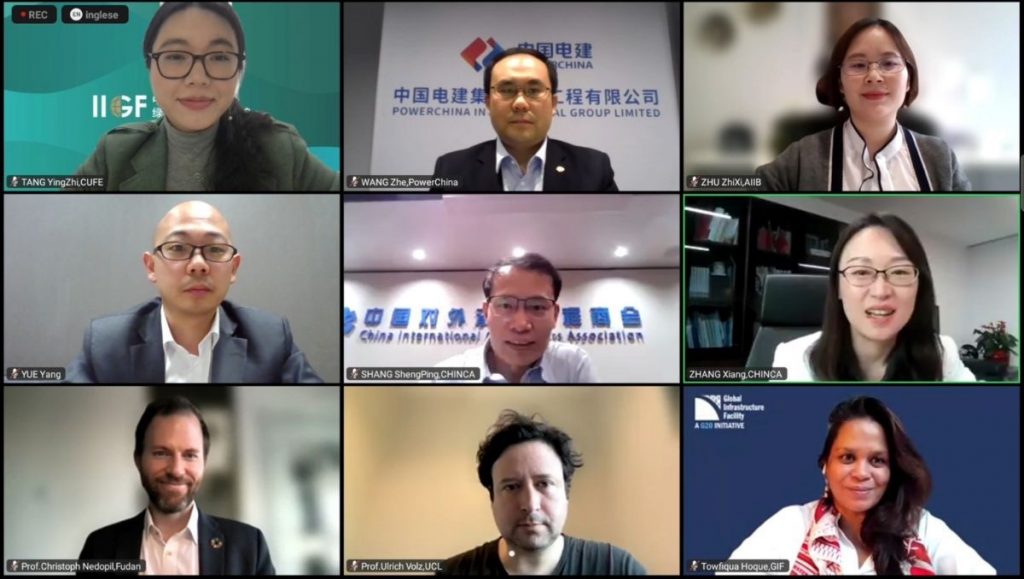
Presentations
Zhu Yuan (Ministry of Ecology and Environment): Belt and Road Initiative Green Development Guidelines
As President Xi Jinping re-affirmed on many occasions, China needs to develop green finance and green infrastructure, in order to achieve the “dual carbon” goal (namely, the peak of carbon emissions by 2030 and carbon neutrality by 2060). It is necessary to improve green development of both national and international projects, thus overseas ESG cooperation is important. Chinese companies are well aware of the necessity to apply ESG standards to international projects they are involved in.
In 2021, the Ministry of Commerce and the Ministry of Ecology and Environment of the P.R.C. jointly issued the “Green development guidelines for overseas investment and cooperation”, a document that encourages Chinese businesses to integrate green development throughout the overseas investment process. The aim of the guidelines is to clarify environmental factors and to incorporate requirements on ecological environmental management, including environmental protection, pollution and climate change.
An important feature of the guidelines is that they encourage Chinese companies to adopt stricter Chinese and international criteria when operating in countries with lower environmental regulation. Another relevant point is that the guidelines include more specific requirements for major industries operating in the field of energy production, water conservancy, petroleum, and transportation projects. For instance, water conservancy and hydropower projects are encouraged to adopt aquatic life habitat preservation methods and they are encouraged not to occupy natural reserves. Other requirements include: the improvement of environmental management capacity, the adoption of clean production practices, the green value chain, environmental certifications, and information disclosure.
Rhys Gordon-Jones (UK Embassy Beijing): International collaboration and support for ESG risk management
The report published by the Intergovernmental Panel on Climate Change highlights the importance of ESG risk management. Political action and international collaboration are important, as emphasized in 2021 during the UN Climate Change Conference in Glasgow and when major financial institutions from across 45 countries, including Chinese financial institutions and controlling assets of over $130 trillion, decided to join the Glasgow Financial Alliance for Net Zero (GFANZ). Governments and financial institutions around the world are increasingly committing to net-zero, which is positive yet not sufficient, as the transition will require higher levels of investment to limit the rise in global temperatures to 1.5°C.
China plays an important role in this context. The UK has supported Chinese steps in this sense and welcomed President Xi Jinping’s announcement in 2021 that China would no longer build or finance new coal-fired projects abroad. The Bank of China immediately followed this recommendation and it has repeatedly reaffirmed that it aims to greening the BRI.
Infrastructure projects are rapidly changing, due to various pressures and expectations, for instance in terms of sustainable standards, local employment and impact on local communities are on the rise. Therefore, solutions related to ESG and infrastructure projects are urgently needed and China, a country that is well aware of this challenge, has increased its focus on ESG. Information disclosure and transparency, in particular, are considered by the UK as a key to achieve sustainable development and progress has been made in this sense. CHINCA’s role is critical, considering for instance sustainability guidelines and workshop, which are important occasions to share knowledge and expertise.
Shang Shengping (CHINCA): Guide on Social Responsibility for China international Contractors 2.0
CHINCA published its first “Guide on Social Responsibility for Chinese International Contractors” in 2010, and it updated the document in 2021. In the first version, the core theme was Corporate Social Responsibility (CSR), while the latest version focuses also on ESG (CSR and ESG have the same origin). The new document also includes issues revolving around climate change mitigation. It has removed some legal requirements about the engineering quality, and it uses international terminology, in order to become more accessible to a wider audience.
The Guide covers 12 main subjects related to ESG for Chinese contractors of overseas projects, and it is based on five basic principles:
- compliance with both local and international standards;
- assessment of social and environmental impact;
- respect of inputs from stakeholders and timely response;
- transparent and ethical operations;
- constant improvement of performance.
The Guide aims to create an ESG framework that focuses on leadership, CSR capacity, and information disclosure:
- in order to clarify board and executives’ responsibilities, companies are required to integrate CSR in their vision, mission and corporate culture, and to have an effective monitoring capacity;
- companies are required to plan an annual CSR program, set out major indicators, formulate related principles, invest in CSR and conduct performance assessments;
- companies should disclose information on both a regular and irregular basis to stakeholders.
The Guide contains specific recommendations in terms of social responsibility management, including, for instance, employees rights and consumers rights (e.g. improving privacy and communication quality), average remuneration should not be lower than local standards, healthy and safe operating conditions (including mental health education and assistance), employees training, consultation mechanisms between employees and managers, respect of cultural differences, anti-corruption, and fair competition. Environmental measures, including adaptation to climate change and energy response plans, are likewise important.
Prof. Christoph Nedopil (FISF Fudan University): Project finance mechanism handbook for overseas infrastructure projects
China is aware of the necessity to move towards a stronger integration of ESG factors into overseas project development. The main questions are how to finance the transition and how Chinese entities can collaborate with international partners through improved ESG application. The activities of Green Finance & Development Center (GFDC) at FISF Fudan University, are related to this topic: notably, the GFDC conducts research related to green BRI, ESG, biodiversity finance and green innovation finance.
Infrastructure finance is currently a great challenge for Asia. Asia alone has a US$51 trillion infrastructure investment need until 2040 according to the Global Infrastructure Hub, in sectors including energy, transport, water, and information and communication technologies. With current investment trends, the shortage is estimated at US$4.6 trillion and it could expand due to sovereign debt issues and changes in GDP growth.
China has been investing and building road and energy infrastructure in the BRI (about US$450 billion from 2013 to 2021). As the initiative involves many countries, the financing that can come from a single country is limited, therefore we need to make sure that a strong international cooperation in green finance supports sustainable development, as emphasized on several occasions also by President Xi Jinping. Currently there are a number of projects were co-financing is happening, but this is not the norm and we need to explore how this can become the norm.
In the project finance mechanism handbook to accelerate co-financing in Chinese overseas project based on in-depth research on Chinese and international project financing practices, eight recommendations were developed to accelerate cooperation:
- focus on high-quality and transparent ways of project initiation;
- strengthen independent risk analysis and identification;
- strengthen Environmental and Social Impact Assessment (ESIA);
- improve Special Purpose Vehicles governance;
- utilize multiple sources of financing;
- optimize the use of guarantees;
- diligently implement an environmental and social management system; and
- report regularly and transparently on environmental and social performance.
NIU Chao (Standard Bank of South Africa): ESG Risk and Control – Financial Institution’s Expectations on Future Project Financing
Investing is likely to become more and more difficult in the future, as more factors become relevant and as pressures from the market increase. It becomes crucial for both shareholders and stakeholders to integrate Environmental and Social Risk Management, considering credit risk, operational risk, reputational risk, shareholder value and regulatory risk.
There is a clear link between ESG performance and financial performance: studies show that ESG investments outperforms traditional investment. The takeaway is that we need to be more transparent (in terms of information and ESG institution engagement), professional (knowing what to focus on) and prepared (especially for project finance-related transactions).
ESG issues are more and more critical, therefore financial institutions need to refer to a coherent set of environmental and social policies and guidelines that can be applied globally and across all industry sectors. An example is the Equator Principles, a risk management framework that financial institutions can use to determine, assess and manage environmental and social risks for financial products supporting new projects. The Equator Principles refer to the International Finance Corporation Performance Standards and the World Bank Group Environmental, Health, and Safety Guidelines. Although they are not rules in legal terms, Equator Principles have been officially adopted by more than 100 financial institutions, including Standard Bank, covering the majority of international project finance debt within developed and emerging markets.
In order to make ESG frameworks work for project financing, it is important to:
- identify the opportunity in advance and performance due diligence in the pre-development stage;
- hire technical advisors for engineering, technical and E&S related scope;
- work with the host governments and think beyond; and
- engage with lenders in advance, making sure to know their requirements.
Towfiqua Hoque (GIF): Global infrastructure gaps and ESG requirements for co-financing with international partners
Risk is not just a commercial risk, especially when it comes to large infrastructure projects with a considerable impact on the environment. The Global Infrastructure Facility (GIF) is based within the World Bank and it focuses on supporting developing markets. GIF is a global collaboration platform that supports the preparation, structuring, and de-risking of high-quality, bankable, sustainable infrastructure programs and projects in emerging markets that are attractive to private capital. It works with a large network of advisory partners (over 50), including pension funds, insurers, asset managers, commercial and investment banks, along with infrastructure, finance and other organizations.
It is important to note that there is no shortage of finance, the problem is finding projects that can meet the requirements of both the public and private sectors.
GIF has guiding principles when it comes to ESG, for instance in terms of protection of labor, resources, community, land, biodiversity, and cultural heritage. GIF’s environmental and social performance standards, first released in 2012, have been constantly reviewed. GIF works on the Sustainable Infrastructure Label (SI Label), a system that has similarities with China’s BRI green light system. The SI Label provides coherency in the market regarding asset quality and sustainability throughout asset lifecycle, it encourages country governments and sponsors to design infrastructure projects with an aim to obtain SI Label to raise financing, and it facilitates investment decisions across private providers of capital and blended financing by donors and development financial institutions.
SI Label includes strict requirements in terms of: sustainability across four dimensions (namely, Environmental, Social, Governance, and Adaptation and Resilience); consistency (built on existing frameworks, taxonomies and standards); declaration and disclosure; and governance (structure inspired by Green Bond Principles and dynamic framework to allow for it to evolve as market develops).
Panel discussion
Wang Zhe (PowerChina International) PowerChina has experience in international business in terms of ESG financing and implementation, it is a large international contractor in the power industry and it is in the process of diversifying its portfolio. Some international challenges to the activities of the company are the economic recession brought by COVID-19, sovereign debt crises, and climate change. In order to face such challenges, the company is implementing the following measures:
- identify financing risks, trying on more stringent standards (for instance, in Kenya PowerChina is building a project according to Equator Principles);
- evaluate social and environmental risks;
- shift towards new energy, in order to achieve China’s “dual carbon goal”. Currently, over 40% of overseas projects are related to renewable energy, and PowerChina established a platform for the development of new energy in cooperation with international companies, including Siemens;
- improve project implementation contributing to the development of local communities and local economy (e.g. PowerChina is currently employing about 170.000 foreign employees).
Zhy Zhixi (AIIB) The Asian Infrastructure Investment Bank has its own environmental policy, which is in line with standards from the World Bank and other multilateral finance organizations. AIIB considers it is the responsibility of finance to ensure all projects meet their ESG responsibilities. There has been a shift of emphasis in recent years: in the past the focus was on preliminary period, namely on ESIA prerequisites before granting loans; today the focus is on the need to adopt mitigation measures and carry them out also in the implementation stage, in particular in the field of infrastructure. Another difference is the level of standards: now they are becoming higher and stricter, and AIIB has plans to cover specific ESG management areas and to incorporate ESG standards to specific projects (e.g. in the energy sector). AIIB also stresses the importance of capacity building for stakeholders and the role that intermediary financial institutions can have in improving ESG standards.
Yue Yang (finance expert) It is crucial for international banks to integrate green finance standards. It is also important to focus on local technical advisors, as local project developers can, at the early stage of the project, offer their help and propose response measures. Local inputs can facilitate response to risks for all parties. In order to understand the local status quo of the market, particularly in areas with high potential risks or for a prominently negatively evaluated investment category, the developers need to consult with local authorities, as emphasized also by CHINCA. Other important points are: first, that market participants need to exchange more with each other; and secondly, that different practices and standards need to be incorporated (this is a great challenge). A crucial question is how bank can ensure the integration of ESG factors. There are two aspects: first, it is important to consider more angles and perspectives; and secondly, although environmental factors are usually under the spotlight, social factors are also very important and often underestimated. Putting people at the center should be part of the ESG spirit.
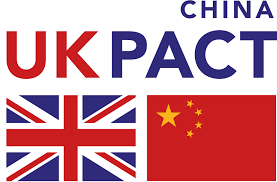
The project organizers are grateful for the support of the UK PACT programme
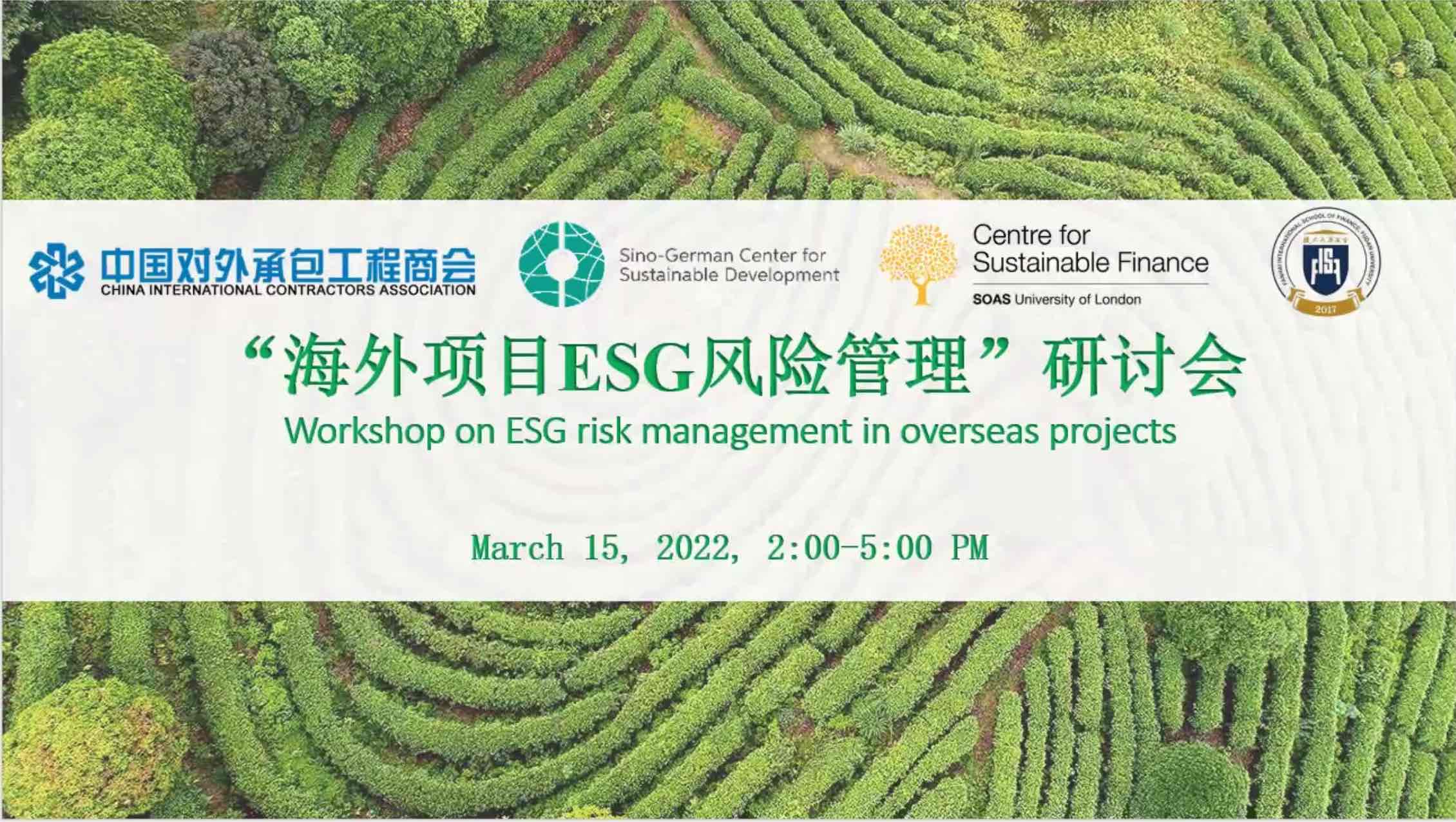

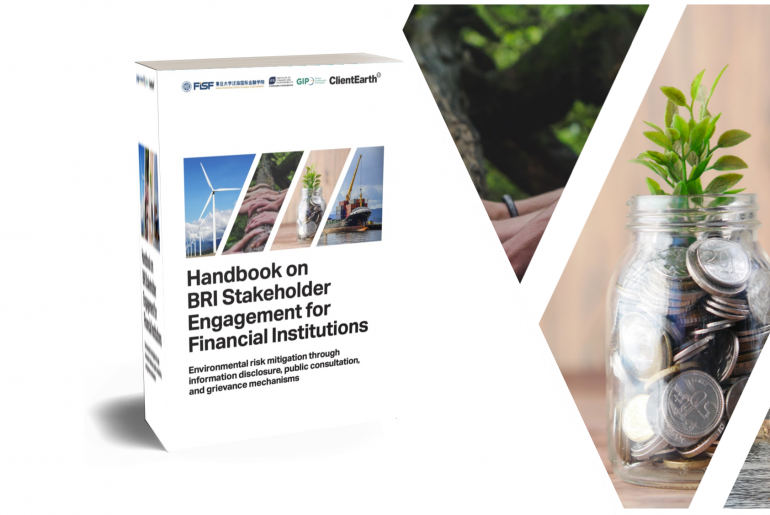

Comments are closed.